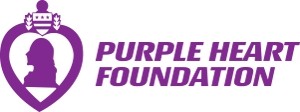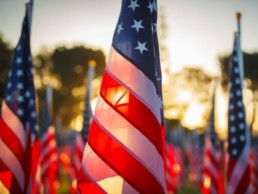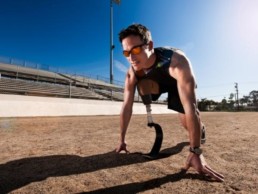4 Ways to Give Back
There are a few days throughout the year when we think about or officially recognize veterans and service men and women. But there are ways to give back to current and former members of our military every day of the year.
Say thank you.
When you see a service man or woman in uniform, or a person wearing something that identifies them as a veteran, take a minute to say hello and thank you. You don’t need to make a big, dramatic gesture; just let them know you appreciate their service. If they feel like talking, take the time to listen to their stories.
Hire a vet.
Do you own a business? Consider hiring a veteran. You can work with the United States Department of Labor’s VETS Program, or similar nonprofit organization that helps vouch for and place qualified veterans in businesses.
Stay informed.
Only a fraction of U.S. citizens currently serve, and few Americans have personal contact with members of our military, causing a disconnect between the military and the civilian worlds. Take some time to get informed about the issues facing our troops and veterans. Follow veteran organizations on social media, and learn about how you can help.
Make a donation.
When you donate to the Purple Heart Foundation, your generous gift helps us to support veterans and their families during their transition from the battlefield to the home front.
Our programs and those to which we award grants support hundreds of thousands of our nation’s heroes. There are many ways you can make a tax-deductible donation.
- Visit our website and make a credit card donation.
- Call us at 888-414-4483 or complete the form to donate your vehicle.
- Schedule a pick-up to donate clothing or household goods.
- Simply text PURPLE to 20222 to make a $10.00 donation right now.
- Consider becoming a Purple Heart Legacy member, and leave a gift from your estate. Call us at 703-256-6139 to discuss your options.
We often get asked how we use your donations. Here is a snapshot. If you want more information, give us a call; we would be happy to share it with you.
We use your generous donations
- To help fund research and assistance that tackle the unseen wounds impacting veterans, things like Post Traumatic Stress (PTS), Traumatic Brain Injury (TBI); suicide, and sexual abuse
- To fund Purple Heart’s Service Officers, who are stationed throughout the country to work with veterans informing them about education opportunities, scholarships, disability compensation, employment training, hospitalization and rehabilitation benefits, pensions, and more
- To employ a full-time attorney dedicated to protecting the interests of wounded servicemen and women and presenting veterans’ claims before a court
Paralympics Rio 2016
This year’s Olympic games in Rio de Janiero, Brazil was full of exceeded expectations, excitement, and more. In addition to Simone Biles, Michael Phelps, and other Olympians, there were 19 servicemen and women who qualified for a position on the Team USA roster–15 active-duty personnel, 2 veterans, 1 Navy civilian, and 1 incoming midshipman to the Naval Academy, including Spc. Dan Lowe, Regine Tugade, and 2nd. Lt. Sam Hendricks.
Out of all 121 medals, Army Specialist Paul Chelimo received one of the 37 silver medals awarded. Chelimo, who was born in Kenya, won the silver in the men’s 5,000 meter run. After the race, he was informed by a television reporter that he was disqualified from the race for infringement in another athlete’s lane, but the ruling was later overturned. Chelimo ran his best time of 13 minutes, 3.94 seconds, right behind Great Britain’s Mo Farah.
Chelimo was a part of the U.S. Army World Class Athlete Program, which he credits for being the reason he was able to compete in Rio, “I’m only here because of these Army Soldiers,” Fanning said. “That’s the reason I’m part of this delegation. But it was fun for the entire delegation to have an extra reason to cheer, not just for the United States but for the Army, so they were screaming loudly for him: ‘Who’s your Soldier? Who’s your Soldier?’”
Chelimo’s next tour will not be overseas with fellow soldiers, but throughout the United States as a trainer with the World Class Athlete Program, inspiring the youth in this country to follow their dreams.
With the Olympics at a close, it’s time to turn our attention to the 15th Paralympic Games, which will also be held in Rio. Of the Paralympians competing, there are 20 soldiers, six Marines, three sailors, and one airman across the 23 sports being showcased.
In addition to Brad Synder, a sailor who lost his eyesight in Afghanistan and holds the world record for the blind 100-meter freestyle, there is Anthony McDaniel competing in Para Rugby and Elizabeth Marks, competing in Para Swimming, among other athletes and veterans. McDaniel lost his legs and left hand in 2010 from an improvised explosive device while serving as a Marine in Afghanistan and Marks suffered severe hip injuries while an Army combat medic in Iraq in 2010, which left her with no sensation in her left leg.
McDaniel said back in 2014 that adaptive sports helped give him a sense of tranquility after spending more than a year in rehab following the IED explosion in August 2010, “It’s just been helping me stay focused and positive,” McDaniel said. “It keeps me out and active every day.”
Marks told ESPN that the medals she earns in her competitions are not the end game–to her, the process of competing is more gratifying and thinks back to helping others during her time as a combat medic, “When I step onto the blocks, I never think, ‘I want to win,’” she says. “I think, ‘I want to pour all of myself into this race because there are people who can’t physically, mentally or emotionally, do that.’ So it’s my way of performing for them.”
The Paralympics are now days away from the start of the 15th Paralympics. It runs from September 7-18. We salute these servicemen and women and are excited to see how they compete and represent the United States and their respective military branches.
The Purple Heart Foundation is committed to assisting not just the Veterans of the Paralympics, but all veterans who have served our country. Show your support for these brave men and women by making a one-time or monthly pledge to ensure Veterans continue to get the support and benefits they deserve by clicking here.


